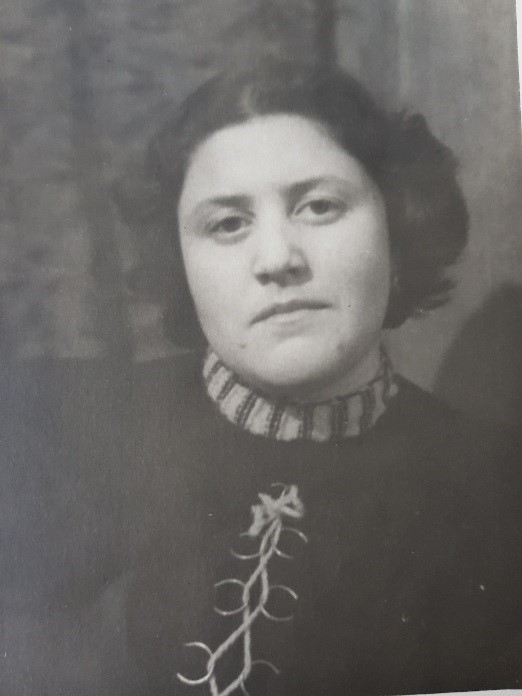Galina Shkurnik was born as Genrietta (Henrietta) Shkurnik in 1927 in Leningrad. Her father Nathan was a lawyer. In the 1930s, he abandoned Jewish tradition and changed his name Nathan to the Russian Anatolii. Her mother also Russified her name. In 1930, Genrietta's parents divorced, and the girl was brought up by her maternal grandmother Rivka Abelskaia, who was religiously observant.
In June 1941 Operation Barbarossa began, and Genrietta evacuated to the Volga River city of Kuibyshev (now Samara), where she worked at a factory. In the winter of 1942-1943, she received notification that her beloved grandmother had died in besieged Leningrad. Eager to revenge the latter's death, Genrietta volunteered for the frontline in March 1943. Since she was only 16 years old at that time, she had to forge her birth certificate. In the new certificate she changed not only her year of birth -- from 1927 to 1925 -- but also her name Genrietta to the more Russian-sounding Galina.
Galina Shkurnik was trained as a medical orderly, and in August 1943 she was assigned to the 42nd Guards Rifle Division, operating on the Voronezh Front (in October 1943 renamed the 1st Ukrainian Front). With it, she took part in the Red Army's offensive against Kiev, serving in western Ukraine and Bessarabia, then in Romania, Hungary, and Chechoslovakia. She finished the war near Prague. By the end of the war, she had reached the rank of major-sergeant (starshina) and was awarded medals: For Battle Merit — In January 1944, For Courage — in September 1944, and the Order of the Red Star — in December 1944.
Her citation for the Order of the Red Star says:
"Sergeant-Major of Medical Service Shkurnik, in battles with the Hungarian-German invaders, revealed courage and valor. In the severe conditions of the mountainous wooded area of the Carpathian Mountains, Guards Sergeant-Major Shkurnik, following infantry fighting formations, carried 18 wounded soldiers and officers from the battlefield. When storming heights of 955 and 1040, Comrade Shkurnik inspired men and roused them to attack. On December 3, 1944, in the area of the village of Alsóvadász, Guard Sergeant-Major Shkurnik, acting as a communication person under the enemy's heavy rifle, machine gun, and mortar fire, repaired two breaks in the communication line."
As follows from the citation, no later than the end of 1944, Galina Shkurnik acquired another military specialty (without abandoning her main military specialty as a medical orderly) — that of a communications person.
After the war Galina Shkurnik entered the Hertzen Institute (university) in Leningrad, from which she graduated in 1953 as a teacher of English. She then worked as a school English teacher. In 1973, she immigrated to the USA, where she lived in Chicago.
Galina Shkurnik died in 2011.







